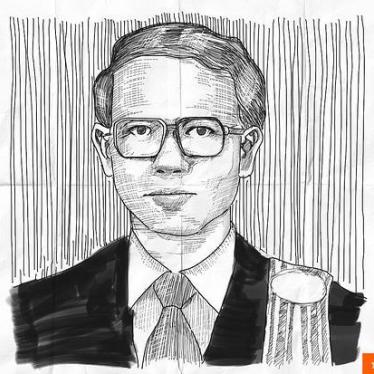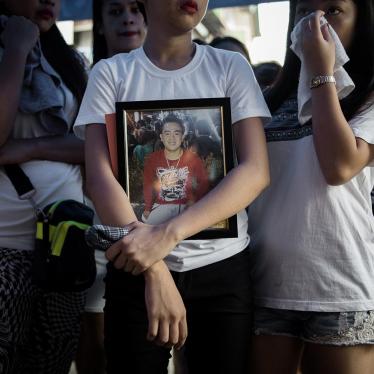After Prime Minister Anthony Albanese’s first official visit to Vietnam, Australians should be asking if their elected leaders are really representing their values in the region. Certainly, the Prime Minister missed the opportunity to raise human rights when Indian Prime Minister Narendra Modi visited Australia. Did Albanese once again fail to discuss a broad range of human rights issues when he visited Vietnam?
Albanese travelled to Vietnam to mark 50 years of diplomatic relations between the two countries. The visit does provide cautious optimism that an Australian citizen, Chau Van Kham, 73, could return home in an international prisoner transfer deal. He is serving a 12-year prison sentence for his affiliation and activities with an opposition political party, Viet Tan. Viet Tan operates openly and lawfully in many countries, including Australia, but Hanoi baselessly labels it “terrorist.”
Chau Van Kham’s case is not an isolated one. More than 150 people remain in prison in Vietnam for peacefully exercising their basic civil and political rights.
Shortly before Albanese’s visit, a court sentenced Bui Tuan Lam to five and half years in prison for “propaganda against the state” for his postings critical of the government on Facebook. Bui Tuan Lam had become famous in November 2021 for making a parody video of himself imitating the celebrity chef known as Salt Bae, who days before had gone viral in Vietnam after spreading salt over a US$2,000 gold-encrusted steak and feeding it to Vietnam’s abusive public security minister, To Lam. Minister To Lam lavishly consumed this while ordinary people in Vietnam were struggling amidst the Covid-19 economic downturn and rampant inflation.
In his parody video, Bui Tuan Lam replaced the gold encrusted steak with everyday sliced pork, green onions, and noodle soup, subjecting Tuan Lam to internet mockery. The police harassed, intimidated, and eventually arrested Bui Tuan Lam, leading to his prosecution and long prison term.
Vietnam’s disregard for basic rights does not end there. During Albanese’s visit, the two countries agreed to work together on the climate crisis. Australia even announced a A$105 million commitment focused on the uptake of clean energy and clean energy infrastructure in Vietnam. Yet, days before Albanese arrived, Vietnamese police arrested the prominent environmentalist Hoang Thi Minh Hong on bogus tax evasion charges. Hoang Thi Minh Hong’s environmental work in Vietnam has been recognised by the likes of Barack Obama, Forbes and TED Southeast Asia.
In 2022 alone, Vietnam convicted and sentenced to prison at least 36 people for criticizing the government or joining independent organizations or religious groups. These included citizen journalists and democracy activists.
In August, courts in Hanoi rejected the appeals of the prominent blogger Pham Doan Trang, and land rights activists Trinh Ba Phuong and Nguyen Thi Tam. Between March and June 2023, courts convicted and sentenced five democracy campaigners to between five and a half years and eight years in prison. Police are holding at least 18 other people in pretrial detention on politically motivated charges.
Freedom of expression, freedom of assembly, freedom of movement, freedom to practice religion and beliefs are all threatened daily in Vietnam. Australia should use every opportunity it has to promote respect for these fundamental human rights, which reflect long-held Australian values.
The Australian government should not forget the people of Vietnam, who do not have a government who will stand up for them. While Australia continues to strengthen its ties with Vietnam, it would do well to remember that a prosperous economy means nothing if it is shrouded in double standards and people are denied basic human rights.








